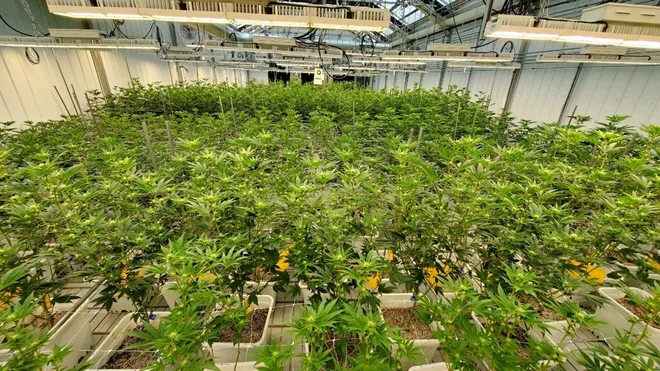Weed in Kratie: A Quiet and Hidden Presence in Cambodia’s Northeastern Province

It offers a rural and peaceful atmosphere, with the town of Kratie being the main urban center. However, like many parts of Cambodia, Kratie is not entirely immune to the presence of cannabis, despite the country’s strict drug laws on weed in Kratie.
Cannabis in Cambodia: Legal and Strict
Cannabis is illegal in Cambodia. The government enforces strict anti-drug policies, with heavy penalties for those caught cultivating, selling, or consuming marijuana. Anyone caught with cannabis can face long prison sentences, hefty fines, and even deportation for foreign nationals. The Cambodian government takes a zero-tolerance approach to drugs, and its laws apply equally in both urban and rural areas, including provinces like Kratie on weed in Kratie.
However, despite these strict laws, cannabis still manages to find its way into the country’s hidden corners. In Kratie, where agriculture plays a central role in the economy, cannabis may be grown discreetly on private land or in isolated areas where it is less likely to attract attention on weed in Kratie.
The Discreet Presence of Cannabis in Kratie
Kratie, with its large expanses of farmland and natural areas, provides an ideal environment for the discreet cultivation of cannabis. The region’s agricultural landscape allows for crops to be cultivated in hidden spots, where cannabis can thrive without drawing suspicion.
Cannabis use in Kratie, like in many rural Cambodian provinces, is typically private. Those who consume marijuana do so in secluded areas or within their trusted circles, keeping the activity out of public view.
It is unlikely that cannabis will be openly sold or consumed in public spaces like markets, cafes, or other communal areas.
Legal Risks and Consequences
Despite its quiet existence in rural areas, cannabis use in Kratie carries serious legal risks. The Cambodian government enforces drug laws strictly, and anyone caught in possession of cannabis, no matter how small the amount, can face severe consequences.
For foreign visitors to Kratie, the penalties can be even more severe. Foreign nationals caught with cannabis may be deported, blacklisted from re-entering the country, or face lengthy prison terms.
Cannabis Use and Regional Shifts
While cannabis remains illegal in Cambodia, the broader Southeast Asian region has seen some shifts in drug policy. Countries like Thailand have moved toward decriminalizing cannabis, especially for medical use, which has sparked discussions about cannabis reform. However, Cambodia has yet to follow this path, maintaining its hardline stance on marijuana.
The focus of local communities remains on traditional agriculture and the peaceful lifestyle that characterizes rural Cambodia. Discussions about cannabis legalization or decriminalization are not widespread, and the issue is largely kept out of the public sphere.
Is weed legal in Kratie, Cambodia?
Cannabis is illegal in Kratie, in line with national Cambodian law. There is no legal allowance for recreational or medical marijuana. Even though cannabis has historical roots in Cambodia, modern legislation classifies it as a prohibited substance.
Does rural Kratie have looser cannabis enforcement?
Not really. Kratie may feel quiet and rural, but law enforcement still applies national drug laws. Police checks do occur, and foreigners can attract attention quickly. Assuming leniency because of the town’s slower pace can lead to serious trouble.
Can travelers buy weed discreetly in Kratie?
No legally. Any offer—whether private or public—is illegal. Accepting or carrying cannabis, even in small quantities, exposes travelers to fines, questioning, or detention. “Discreet” does not mean legal or safe.
Are cannabis edibles or oils treated differently?
No. Edibles, oils, tinctures, and vape products containing THC are all illegal. These products can actually increase suspicion because they are easier to transport and conceal, which authorities may treat more seriously.
Legal alternatives to weed in Kratie
Kratie offers calm, legal ways to relax and enjoy your stay:
- Mekong River sunsets and dolphin watching for natural stress relief
- Traditional herbal drinks used locally for relaxation and digestion
- Mindfulness or journaling by the river
- Local massages using non-cannabis herbal balms
These options fit well with Kratie’s peaceful atmosphere.
What are the risks for tourists caught with cannabis in Kratie?
Tourists can face confiscation, fines, detention, or legal processing. Outcomes vary, but foreigners often face higher scrutiny. Paying bribes is illegal and risky, and situations can escalate quickly.
Is Cambodia moving toward cannabis legalization?
At present, there is no clear movement toward legalization. Authorities continue to publicly discourage drug use and prioritize enforcement. Any legal change would likely be gradual and tightly controlled.
Authoritative resources on cannabis laws
For reliable, up-to-date legal context, consult:
- https://www.incb.org – International Narcotics Control Board reports
- https://www.gov.uk/foreign-travel-advice/cambodia – traveler legal guidance
These sources help travelers understand risks before arriving.
Conclusion: Should you use weed in Kratie?
The short answer is no. Cannabis remains illegal in Kratie, and the legal risks outweigh any perceived tolerance. Kratie’s charm lies in its slow pace, river life, and nature—enjoy those instead and avoid unnecessary trouble by respecting Cambodian law.

When it comes to marijuana products, ScentHub offers an extensive selection of some of the highest quality items I’ve come across. I’ve tried a variety of strains, edibles, and concentrates, and the quality has consistently been outstanding. The flowers are always fresh, fragrant, and potent. I’ve had the chance to try both Sativa and Indica strains, and the effects have been exactly as described. Contact them on email: Scenthub43@gmail.com and also there Telegram : t.me/Scenthub43
Wow they have an option for me. The variety in their selection means that no matter my experience level, I’ll find a product that fits my needs. highly recommended .

I can say without hesitation that ScentHub has earned my loyalty. From the quality of the products to the exceptional customer service.
“I was struggling with insomnia, and they found the perfect edible for me, Thank you”
Mine helped my dad find a tincture for his arthritis, highly recommended.
You’ve helped me smile again.